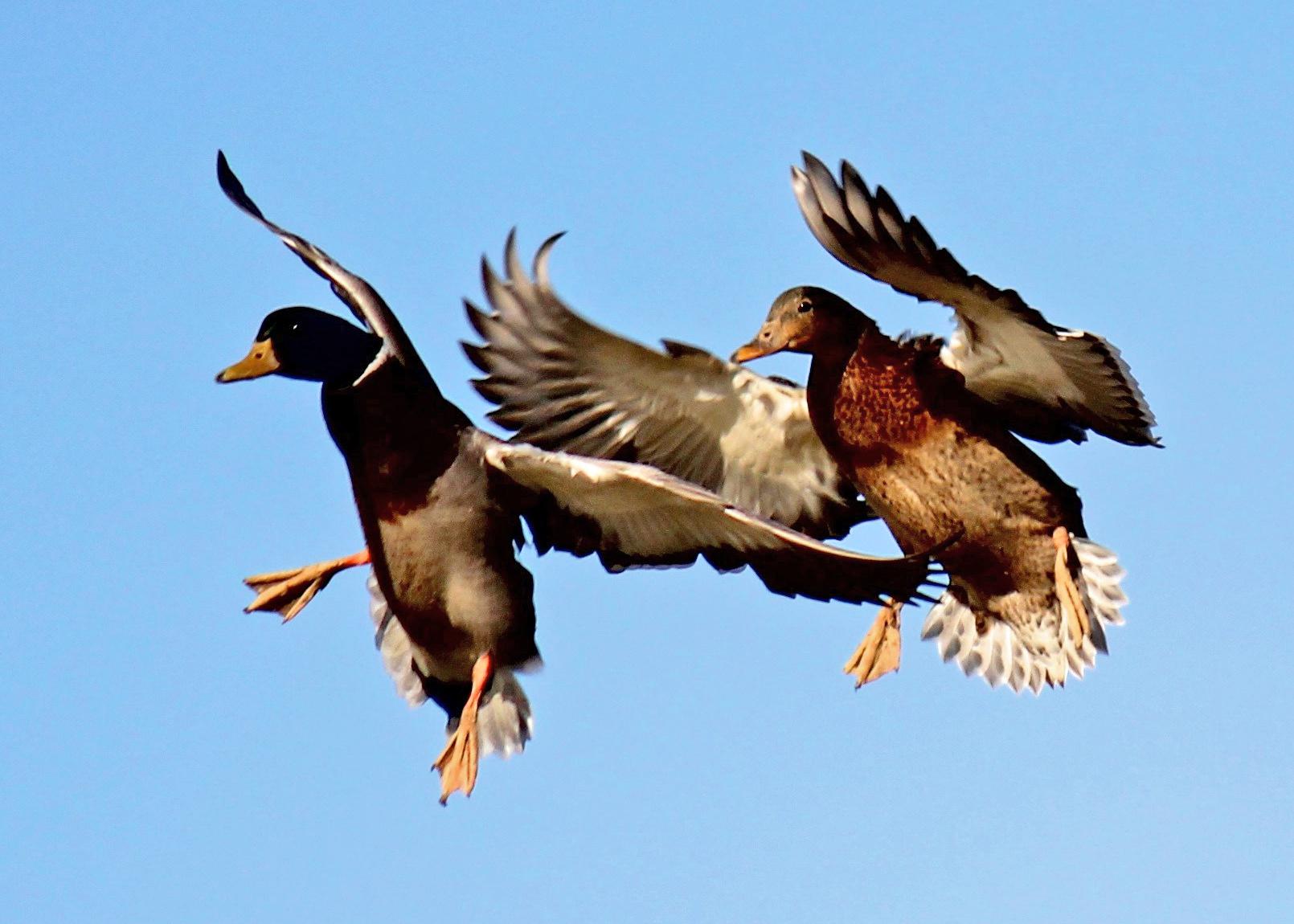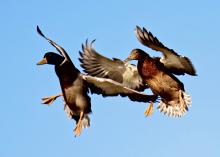Information Possibly Outdated
The information presented on this page was originally released on October 16, 2015. It may not be outdated, but please search our site for more current information. If you plan to quote or reference this information in a publication, please check with the Extension specialist or author before proceeding.
Waterfowl hunters can help minimize the spread of avian influenza
It’s that time of year when medical experts recommend we all get flu shots to minimize the chance of influenza causing us to get really sick or, in extreme cases, even die. Believe it or not, wildlife can get the flu, too.
This fact is particularly true with many bird species that catch various strains of avian influenza, more commonly known as bird flu, every year. Depending on the strength of the virus, wild birds may show no symptoms at all or they could simply get sick. But in some cases, the highly pathogenic strains of the virus can cause death, especially in domestic poultry, such as chickens and turkeys.
Waterbirds, such as ducks, geese and shorebirds, are the wild birds most commonly associated with avian influenza. The most common route for transmission among wild birds is though their feces. In a wetland environment, where waterbirds often congregate to loaf and forage, the virus can live for short periods in the water. Uninfected birds can catch the virus by inadvertently consuming the infected waste material from an infected bird.
Currently, we don’t know if avian influenza will be common in Mississippi’s waterfowl in 2015-16. Luckily, biologists from the U.S. Department of Agriculture’s Wildlife Services will be sampling birds throughout Mississippi this fall to determine whether or not any of the highly pathogenic strains of the virus are common in our waterfowl populations.
One of the biggest concerns with a highly pathogenic strain of avian influenza is the potential impact to Mississippi’s domestic poultry industry. The virus can be catastrophic in poultry houses and even in backyard flocks because it is easily transmitted from bird to bird. The mortality rate of infected flocks is 95 to 100 percent, with no known cure.
This was the case earlier this year when almost 50 million birds, primarily turkeys in Minnesota and table egg layers in Iowa, were lost to the disease. In a commercial poultry setting, the virus can be transmitted rapidly through respiratory secretions and through the fecal-oral route more common in wild bird populations.
So how can we help minimize this risk?
Because waterfowl hunting is so popular in Mississippi, hunters can actually play a role in spreading avian influenza to domestic poultry. However, a few simple precautions can greatly reduce the chances of spreading the virus to a poultry facility.
The USDA offers several tips to help prevent spreading the virus. When possible, clean gamebirds in the field. Do not wear the same shoes or clothes around a poultry facility that were worn while hunting or cleaning game birds. The virus can cling to footwear and clothing. Likewise, don’t take any gear used for hunting or cleaning a wild bird, such as a pocketknife, around domestic poultry.
After hunting, take a shower or bath, including washing your hair, to lessen the risk that you may be carrying the virus on your person. If possible, avoid contact with chickens for 72 hours after hunting.
If you work with the commercial poultry industry, have dedicated footwear for each poultry house or have disposable boots available for each house to lessen the risk of tracking the virus into a poultry house.
Always wear rubber gloves when cleaning wild birds. Double-bag the remains and gloves after cleaning birds, and dispose of them in a container that cannot be accessed by other animals, including pets. Wash hands thoroughly and use hand sanitizer after handling wild birds. Wash all cleaning tools and surfaces with soap and water and then disinfect them.
Keep in mind that the likelihood of the virus spreading to a domestic poultry house or backyard flock is very low if you can maintain proper biosecurity procedures and minimize the opportunity for exposure to the virus. If you are a hunter, simply following USDA’s precautions can make a big difference.
If you suspect your poultry may be suffering from avian influenza, please contact your Extension county agent. They can connect you with experts that can diagnose sickness and provide further advice on how to handle your specific situation.
 Editor’s Note: Extension Outdoors is a column authored by several different experts in the Mississippi State University Extension Service.
Editor’s Note: Extension Outdoors is a column authored by several different experts in the Mississippi State University Extension Service.

Editor’s Note: Extension Outdoors is a column authored by several different experts in the Mississippi State University Extension Service.









